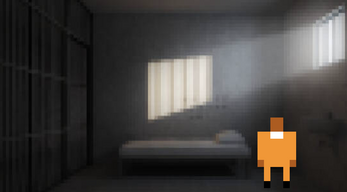A Life? Without Parole
LWOP refers to life without parole, a harsh sentence given for particularly egregious crimes. Parole allows the incarcerated person to complete the remainder of their sentence outside of prison, assuming certain conditions are met. Without the possibility of parole, the sentence currently dooms 55,000 people to remain in prison until they die.
Though this is done with the intention of ensuring proper punishment and security, such sentencing essentially turns prisons into makeshift nursing homes. The development of chronic conditions and terminal illnesses at end-of-life stages facilitates the need for prison hospice care, placing an additional role that prisons were not established for. Additionally, studies have shown imprisoned people over 40 generally decrease in their violent tendencies and violent crime recidivism rates, where recidivism refers to the likelihood to commit another crime. Maintaining the long prison sentences prevents meaningful integration of the imprisoned people into society, even as their criminal tendencies wane. LWOP sentences also tend to be arbitrary and with racial biases that reflect an unequal justice system.
Many imprisoned people with this sentencing lose hope, however there are others who become more introspective and have an increased desire to contribute to the community. This can be seen by people with such sentences volunteering in prison hospice programs, most notably in the documentary Serving Life (2011).
The game showcases an imprisoned person’s new life in prison with a LWOP sentencing. The monotony, introspection, and self-change are major components shown to exemplify the experience. It is important to understand that such a sentence seems favorable theoretically, however in practice it creates a burden on the system and goes fundamentally against the idea of prison rehabilitation. At least providing the option of parole would be a step forward for establishing a better carceral system.
- Cohen, L. R (Director). (2011). Serving Life (Documentary). Oprah Winfrey Network.
- Livingston, W. B. “Hopelessness: Life Without Parole.” Prison Journalism Project, 2021, https://prisonjournalismproject.org/2021/12/02/hopelessness-life-without-parole/
- Johnson, T. “A Debilitating Disease Called Life Without Parole.” Prison Journalism Project, 2022, https://prisonjournalismproject.org/2022/07/29/life-without-parole-transformatio...
- Leigey, M. E. “For the longest time: The adjustment of inmates to a sentence of life without parole.” The Prison Journal, vol. 90, no. 3, 2010, pp. 247–268.
- Sliva, Shannon M. “On the meaning of life: A qualitative interpretive meta synthesis of the lived experience of life without parole.” Journal of Social Work, vol. 15, no. 5, 2014, pp 498–515.
- Sorensen, J., & Wrinkle, R. D. “No hope for parole: Disciplinary infractions among death-sentenced and life-without-parole inmates.” Criminal Justice and Behavior, vol. 23, no. 4, 1996, pp. 542–552.
Music: "Sad New World" by Trevor Lentz
